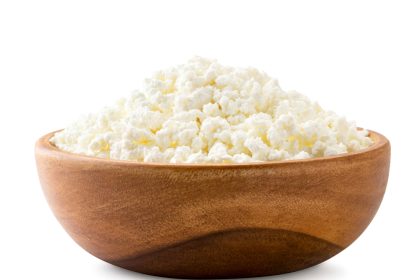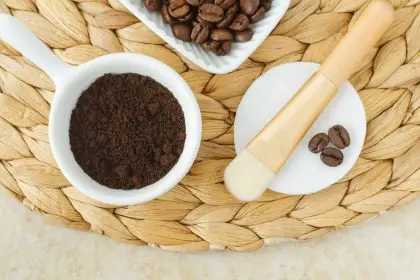The conversation surrounding organ donation has long been a sensitive and, at times, difficult subject for many communities. For the Black community, in particular, the decision to donate organs can be fraught with historical mistrust in the medical system, cultural beliefs and personal hesitations. However, organ donation is more than a medical necessity — it’s a matter of life, legacy and collective strength. By choosing organ donation, the Black community can save lives within their own and create a lasting legacy of care.
In this article, we will explore why organ donation is vital to the Black community and how breaking down barriers around this issue can bring about meaningful change. With alarming disparities in health care outcomes, the need for organ transplants in the Black community is more significant than ever. The life you could save might be the person next to you — or your own.
Understanding the disparity in organ donation
It’s no secret that health disparities have deeply affected the Black community, and this is especially true in the area of organ transplantation. African Americans are disproportionately affected by conditions like hypertension, diabetes and heart disease — diseases that often lead to the need for kidney, heart and liver transplants. The demand for these life-saving organs is high, yet the supply remains tragically low.
African Americans make up 13 percent of the U.S. population but represent about 30 percent of those on the national waiting list for kidneys — the most common organ transplant. This disparity means that the longer wait times and lower availability of organs are costing lives at a higher rate within the Black community. This reality brings an emotional weight to the conversation — as too many families are left waiting for a miracle that might never come.
A significant hurdle to organ donation within the Black community is the historical mistrust of the medical system. From the exploitation of Black bodies in medical research — such as the infamous Tuskegee Syphilis Study — to present-day disparities in treatment, many Black Americans hold deep-rooted fears of being mistreated by health care professionals. While these concerns are valid, it’s important to recognize that modern-day organ donation and transplant processes are highly regulated and overseen by multiple ethical boards to ensure fairness and transparency.
By embracing organ donation, Black Americans have the power to support their community. Often, matches for organ donation are more likely to come from donors of the same ethnic background due to genetic similarities. This means that by increasing the number of Black organ donors, the Black community can directly reduce the number of those waiting on transplant lists.
The power of life: How one donation can change everything
The beauty of organ donation lies in its ability to ripple through countless lives. One organ donor can save up to eight lives, and their tissue donation can enhance the lives of up to 75 people. Imagine the impact of one decision made by an individual that could restore sight, bring a parent back to their family or allow a child to live a long and healthy life.
While we often focus on the recipient, the donor and their family are equally uplifted by the gift of giving. Donating is not just a medical transaction; it’s an act of love, kindness and empathy. It allows the donor’s legacy to live on in the lives they save and the families they heal.
The emotional aspect of organ donation becomes more evident when we hear the stories of those who have benefited from this selfless act. Take, for example, the story of a young Black man who tragically lost his life in a car accident. His family — devastated by his sudden passing — made the difficult yet powerful decision to donate his organs. Not only did his organs go on to save multiple lives, but his family found solace in knowing that a part of him lived on — helping others live their best lives.
By sharing these stories, the Black community can inspire others to see organ donation not as a loss, but as a continuation of life, love and community.
Overcoming cultural and religious beliefs
Cultural and religious beliefs often play a significant role in a person’s decision to donate organs. Some individuals within the Black community may believe that organ donation goes against their religious beliefs or that it might affect the way they are remembered after death. However, many religious leaders across various faiths actively support organ donation as an act of compassion and charity. Engaging with local faith communities to educate and dispel myths about organ donation can go a long way in changing minds and hearts.
Education is a critical tool in helping more people understand the life-saving potential of organ donation. Initiatives that focus on educating the Black community about the importance of organ donation should be prioritized. Schools, churches and community centers can all play a part in raising awareness about the need for organ donors. By starting these conversations early and making the facts about organ donation accessible, more individuals can make informed decisions about becoming donors.
Health care access and the role of advocacy
While increasing the number of Black organ donors is crucial, it’s equally important to advocate for fair and equal access to transplants. Even when organs are available, Black patients are less likely to receive organ transplants than their white counterparts, due to a variety of factors — including systemic biases in health care and socioeconomic challenges. Advocacy groups and community leaders must work together to push for changes in health care policies that ensure fair access to transplant lists and equitable care throughout the transplant process.
Trusted community leaders, influencers and health care professionals can serve as powerful advocates for organ donation. When well-respected individuals within the Black community speak out in favor of donation, it helps break down the walls of skepticism and fear. Through partnerships with these trusted voices, organizations supporting organ donation can create campaigns that resonate with the community and lead to higher registrations of donors.
A legacy of healing and hope
Organ donation is more than a medical issue — it’s an issue of love, hope and responsibility. By embracing organ donation, the Black community has the power to directly address the health disparities that continue to harm its members. Becoming a donor isn’t only a personal choice but a collective one that helps create a legacy of healing and compassion.
Each time a life is saved through organ donation, a family is given a second chance. By understanding the life-changing potential of donation, breaking down cultural barriers and advocating for equitable health care, the Black community can ensure that no one is left waiting for the gift of life.
Ultimately, the question is not just, “Why should the Black community embrace organ donation?” but, “How many lives will be saved when they do?”
This story was created using AI technology.











